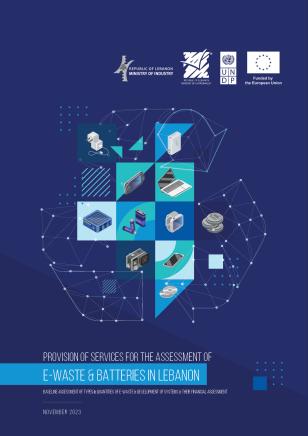Provision of Services for the Assessment of E-Waste & Batteries in Lebanon

Provision of Services for the Assessment of E-Waste & Batteries in Lebanon
July 21, 2024
Electronic waste (e-waste) is rapidly growing, posing significant challenges, especially in developing countries lacking proper handling and recycling capacities. Lebanon faces substantial e-waste issues due to inadequate infrastructure and low stakeholder awareness.
In 2022, Lebanon generated 47,501 tons of e-waste, projected to rise to 74,529 tons by 2040, with battery waste also expected to increase significantly due to the growing use of solar systems. The study identified key stakeholders but noted a lack of regulatory framework, infrastructure, and public awareness. Proposed solutions include implementing Extended Producer Responsibility (EPR) schemes, setting collection rate targets, and developing effective collection channels. Establishing a "proof of concept" facility for e-waste treatment was also recommended. The report emphasizes the need for robust e-waste management practices, regulatory frameworks, and public awareness to ensure sustainable waste management in Lebanon.

 Locations
Locations